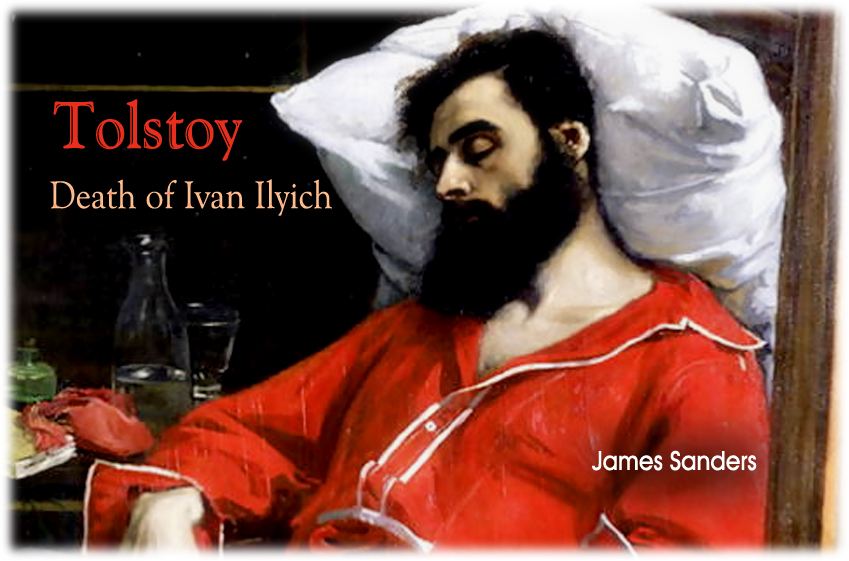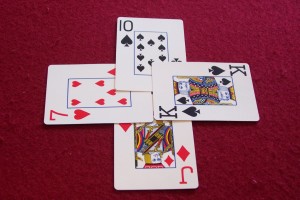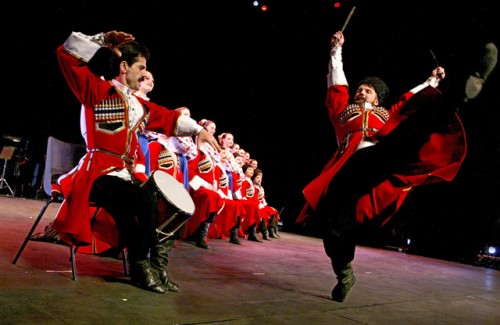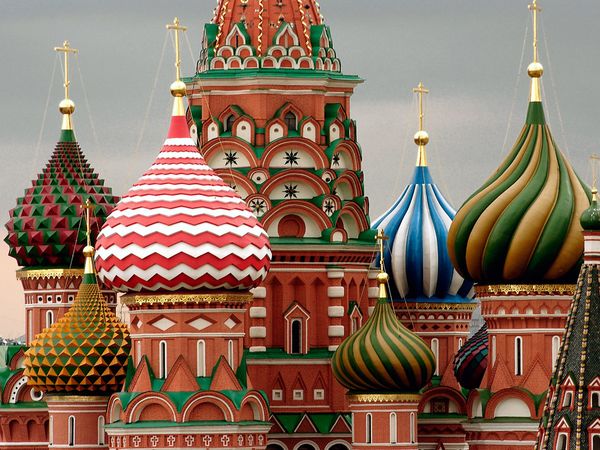Then he grew quiet and even held his breath and ceased weeping.
It was as though he were listening, not to an audible voice
but to the voice of his soul.
All that had then seemed joys now melted before his
sight and turned into something trivial—
To every thing there is a season, and a time to every purpose under the heaven:
A time to be born, and a time to die— Ecclesiastes 3:1, 2
[2col1]DEATH IS so unfair, so unpredictable. Death is also crushingly inevitable. Men die and often when they are the least prepared. Everyone expects the old to die but when death comes resulting from an insignificant hit on the side, comes in the prime of life just when hope seemed everywhere, when death comes at such a time, we are left without answers. In The Death of Ivan Ilyich, Leo Tolstoy writes of death coming at the wrong moment.
Tolstoy, of course, was one of the Russian realists, and in this short novel he exhibits the strength and characteristics of realism in literature. For one thing, nothing is more. real than death. And Tolstoy’s treatment of the subject is a compelling journey into the stark and terrifying bareness of what it means to die.
At one point in the story even the bowel movements of Ivan Ilyich are depicted. These had become embarrassingly torturous for the dying Ilyich:
And this was a regular torture — a torture because of the filth, the unseemliness, ·the stench, and the knowledge that another person had to assist in this.
Yet it was precisely through this unseemly business that Ivan Ilyich derived some comfort. The pantry boy, Gerasim always came to carry out the chamber pot. He was always bright and cheerful. At first, it embarrassed Ivan Ilyich to see this young fellow in his clean Russian peasant clothes performing such a revolting task.
Once when he got up from the pot too weak to draw up his trousers, he collapsed into an armchair and horrified, gazed at his naked thighs with the muscles with the muscles clearly etched on his naked flesh. Just then Gerasim entered the room.
“Yes, sir?”
“This must be very unpleasant for you. You must forgive me. I can’t help it.”
“Oh, no sir!” said Gerasim as he broke into a smile, his eyes and strong white teeth gleaming. “Why shouldn’t I help you. You are a sick man.” (chapter 7.4- 11 )
[endcol] [2col2]Control over even one of life’s most basic functions now had begun to gradually elude his grasp. Living had become an unkind embarrassment. Death was demeaning Ivan Ilyich, and he was powerless. There was nothing he could do.
Another example of realism is when Ilyich realizes that something dreadful was happening—
There was no deceiving himself; something new and dreadful was happening to him, something of such vast importance that nothing in his life could compare with it. And he alone was aware of this. Those about him either did not understand or wish to understand and thought that nothing in the world had changed. (chapter 4.20)
His family had begun to be “caught up in a whirl of social activity” and had found Ilyich’s condition disconcerting. They came to blame Ilyich for what was happening. No one, though, yet mentioned death but Ilyich found himself growing ever more exhausted. The pain in his side became increasingly more severe, and—
the taste in his mouth became more and more peculiar; he felt his breath had a foul odor; his appetite diminished and he kept losing strength. (chapter 4.20)
Tolstoy is rather graphic in describing the stench of death and leaves little to our imagination.
[2col1]A third example of the realistic style is the description of Ilyich’s corpse. A friend, Pytor Ivanovich, came to pay his last respects, and this is what he found—
The body lay, as the dead invariably do, in a peculiarly heavy manner, with its rigid limbs sunk into the bedding of the coffin and its head eternally bowed on the pillow, a yellow waxen forehead . . . and yet, as with all dead men, his face had acquired an expression of greater beauty — above all, of greater significance — than it had found in life. Its expression implied that what needed to be done had been done and done properly. (chapter 1.24)
Tolstoy, however, is not simply detailing death in realistic overtures. There is another theme or motif that underscores the story’s bleak genuineness. Death and life intertwine. In one sense, then, The Death of Ivan Ilyich is really about the life of Ivan Ilyich. His life, of course, was one of career climbing and upward mobility, Ilyich, as one literary critic calls him, was—
kind of a Russian everyman; he gets his degree, starts up the occupational ladder, marries the right kind of girl, gets the right kind of friends, the right kind of furniture. (Matlaw 150)
Everything in Ivan Ilyich’s life was right and as he had planned it. One might say that Ilyich was a 19th Century Yuppie, or Millennial. The inevitability of death, however, changed the focus of his life and rudely forced him to reflect. Tolstoy uses these words to describe the mood and hope Ilyich entertained—
The pleasures Ivan Ilyich derived from his work were those of pride; the pleasures he derived from society, those of vanity; but it was genuine pleasure he derived from playing whist: to sit down with some good players, to play a clever serious game, then have supper and drink a glass of wine.
So they lived. They moved in the best circles and their home was frequented by people of importance . So they lived. Everything went along without change and everything was fine. (chapter 3.21, 22, 23)
[endcol][2col2]When Ivan Ilyich comes to grips that he, in fact, is dying rather than living, his thoughts go back and search for the meaning of life, for the reason that men live. Ilyich looked at his marriage as a pretense and a disillusionment. He also reflected on all those time he had worried so intently about money. Now, of course, it did not matter. He had deluded himself, In fact, Ilyich was forced to confront himself; his life which he had thought of as steadily going uphill had been going downhill all the time—
All of the seeming joys of his life vanished before his sight and turned into something trivial and often nasty. “It is as though I was steadily going downhill while I imagined I was going up. Now, it’s gone and all I can do is die.”
“What does it all mean? Why has it happened? Something must be wrong. Perhaps, I did not live as I should have,” it suddenly occurred to him. “But how could that be when I did everything one is supposed to?”
And he stopped crying and turning his face to the wall, began to dwell on one and the same question: “Why all this horror? What is it for?” But think as he might, he could find no answer. (chapter 9.23 ff)
Tolstoy’s ability, then, to capture the dynamics of both death and life is realistic, genuine, true. In fact, the psychological dimensions of life and death are the best examples of Tolstoy’s use of the realistic literary style. Ivan Ilyich’s innermost thoughts are especially significant. Indeed, such thoughts mirror the soul of many of us, including, perhaps Tolstoy himself. It is far too easy to get caught up in the world, losing our life, and perhaps, our soul as well in the pursuit of what we think is most important.
When we know we are dying |
[2col1]
Interestingly enough, according to psychological studies conducted by Elisabeth Kübler-Ross, “death is so terrifying that we prefer to ignore its reality.” And though one would not suspect it, even doctors and nurses find it difficult to acknowledge that a terminally ill patient, is hopelessly dying. Perhaps, it is all part of our humanness and our own sense of mortality. But the result, says Kübler-Ross, is that both death and the dying are treated impersonally. Dying, then, becomes routinely lonely, mechanical, dehumanizing (7).
The doctors who treated Ivan Ilyich could not bring themselves to say that he was dying. Ilyich, however, knew the truth and what distressed him most was their denial of that truth. He called this their lie—
Ivan Ilyich suffered most of all from the lie, the lie which, for some reason, everyone accepted: that he was not dying but was simply ill. They refused to acknowledge what he and every one else knew; they wanted to lie about this horrible condition and to force him to become a party of that lie, a lie perpetrated on the eve of his death, a lie that was bound to degrade the awesome, solemn act of his dying to the level of their social calls, their draperies and the sturgeon they ate for dinner. (chapter 7.30)
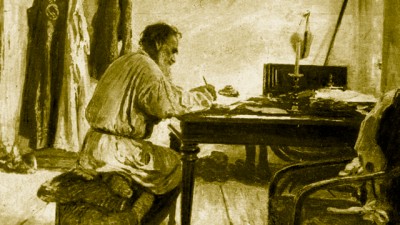
[endcol]
[2col2]
Again, Tolstoy portrays in realistic fashion the starkness of what it means to die. It would seem that in the face of death, none of us, including physicians, know what to say.
Kübler-Ross also found that the terminally ill pass through psychological stages as part of dying. These stages range from denial to resignation or acceptance. Hope often emerges on the way but it fluctuates much like a tide that ebbs and flows. Ivan Ilyich went through all the stages in accepting his own death; he felt anger, he tried to bargain death away; he grew numb with despair; and, at last he accepted what had to be accepted. From a literary viewpoint, each stage illustrates the force of realism in Tolstoy’s style of writing.
[endcol] [clearcol]
[2col1]Stage One: This cannot be happening
During the first stage of dying, the terminally ill deny the possibility of their own death. Kübler-Ross describes this as a temporary defense, a state of shock allowing the patient to regroup his thinking. Withdrawal and isolation are a part of this stage (34-43). Ivan Ilyich experienced these same emotions. Even though he progressively became worse, Ilyich thought of his “discomfort in his left side”as ill health” (chapter 4.1). And when the pain did not go away, he turned to desperation and simply dismissed the whole idea that he was dying. This approach failed him—
The pain did not subside, but Ivan Ilyich forced himself to think he was getting better. And he managed to deceive himself as long as nothing upset him. But no sooner did he have a nasty episode with is wife, a setback at work, or a bad hand at cards, than he immediately became acutely aware of his illness. (chapter 4.17)
Remarkably enough, Tolstoy once even uses the word isolation to describe Ivan Ilyich’s response to what was happening within him as well as outside of him:
During the last days of the isolation in which he lived, lying on the sofa with his face to the wall, Ivan Ilyich lived only with memories of the past. One after another images came to mind. His recollections always began with what was closest in time and shifted back to what was most remote, to his childhood and lingered there. (chapter 10.5)
Obviously,Tolstoy had perceived this stage of death and described it poignantly and accurately. Ilyich’s terminal sickness began as an innocent accident. He was on a ladder, hanging drapes at a window. Ilyich missed a step on the ladder and fell, hitting his side against a knob on the window. The result was a small bruise, nothing more, or so Ilyich thought. Later, he even joked about the awkward experience and the small, insignificant bruise—
It’s a good thing that I am so agile. Another man would have killed himself, but I got off with just a little bump here; it hurts when I touch it, but it is already beginning to clear up— it’s just a bruise. (chapter 3.17)
After Ivan Ilyich dies, a close friend, a friend from boyhood comes to pay his last respects but the sight of the dead body before him strikes fear within Pytor Ivanovich—
He thought of the suffering of someone he had known so well, and fear for himself took possession of him. “Why the same thing could happen to me at any time now,” he thought and for a moment felt panic-stricken. But at once, he himself did not know how. he was rescued by the customary reflection that all of this had happened to Ivan Ilyich, not to him, that it could not and should not happen to him. (chapter 1.42)
Whether it is a dying man, or death itself, we find ourselves at a loss for words; the horror of the moment forces us to turn our thoughts inward— ” It is better to go to the house of mourning, than to go to the house of feasting: for that is the end of all men; and the living will lay it to his heart” (Ecclesiastes 7:2)
[endcol][2col2]Stage Two: Why me? Why now?
The anger stage of dying is likewise a defense mechanism and is marked by a radical change in behavior:
In contrast to the stage of denial, this stage of anger is very difficult to cope with. . . . The reason for this is the fact that this anger is displaced in all directions.(Kübler-Ross 44)
The emotions vary from, “Why me?” to “Why is it that someone else is not dying, someone less worthy, or whose family does not depend on them so deeply?” Sometimes the patient raises his voice, perhaps, in an effort to tell others that he is not dead yet” (Kübler-Ross 46).
Ivan Ilyich was angry about his own death. At first, he was only irritable, but his irritability grew and he found himself quarreling more and more with his wife. No one in his family could do anything right. The food was not good, a dish was chipped, or a child put an elbow on the table—
Either he noticed that a dish was chipped, or the food was not good, or his son had put an elbow on the table, or his daughter had not combed her hair properly. (chapter 4.3)
Ivan Ilyich’s anger was unreasonable, usually directed toward his wife. He especially struck out at those nearest to him, at those who loved him. His irritation was thrown at everyone and everything: “Now every setback knocked the ground out from under him and reduced him to despair” (chapter 4.17). Ultimately, Ilyich even came to hate his wife: after all, she was alive but he was dying—
She sat there a while longer then went up and kissed him on the forehead. As she was kissing him, he hated her with every inch of his being, and he had to restrain himself from pushing her away. (chapter 5.30, 31)
 He came to resent her plumpness, her whiteness, and the way her eyes sparkled with vitality (chapter 8.32). Everything about her reminded Ivan Ilyich that he was dying. She, too, came to hate Ilyich and even began to wish for his death. It was out of self-pity as much as it was out of exasperation (74).
He came to resent her plumpness, her whiteness, and the way her eyes sparkled with vitality (chapter 8.32). Everything about her reminded Ivan Ilyich that he was dying. She, too, came to hate Ilyich and even began to wish for his death. It was out of self-pity as much as it was out of exasperation (74).
Having concluded that her husband had a horrible disposition and had made her life miserable, she began to pity herself. And the more she pitied herself, the more she hated her husband. She began to wish that he would die, yet she could not really wish that, for then there would be no income. This made her even more incensed with him. She considered herself supremely unhappy because not even his death could save her. (chapter 4.3)
The awfulness of death had interrupted both of their lives and had made them feel helpless. And they both were angry for such despair could not go on, and yet such despair must not end. Either option was unthinkable for either Ilyich or his wife.
Ivan Ilyich, of course, especially felt angry and like the patients described by Kübler-Ross, he was attempting to cope with the unacceptable fact of his own death. He could not deny it away; he could not wish it away; he could not anger it away.
[endcol] [clearcol]
[2col1]Stage Three: OK, but I need to understand
The third stage in dying is that of bargaining with death. Kübler-Ross compares this stage to a child attempting to appease a disapproving parent. At first the child may be angry—
If I cannot spend the night with my friend, I will lock myself in my room.” Later, however, the child may try a different approach, “If I am very good all week and wash the dishes every evening, then will you let me go?” (72)
Ivan Ilyich thought he could bargain with death. He would accept his death calmly if he just could understand the reasoning behind it all. Ilyich though that this was not asking too much. He desperately tried to intellectualize his death by remembering a syllogism he had learned in school—
The syllogism he had learned from Kiesewetter’s logic— “Caius is a man. men are mortal, therefore, Caius is mortal” —had always seemed correct as applied to Caius, but by no means to himself. Caius represented man in the abstract, but he was not Caius, not an abstract man. He had been little Vanya with a mama and a pap, with toys. a coachman, and a nurse, with all the joys, and sorrows, and enthusiasms of his childhood, boyhood, and youth. (chapter 6:3)
But nothing worked. His reasoning led to no rationale explanation that could comfort him. When he asked himself what was the point of it all, there was no answer: “The pain was still there, gnawing away at him and he could no longer forget— It was staring at him distinctly from behind the plants” (chapter 6.12). Ilyich often found himself brooding over the same horrible question—
‘Is it true that this is death?’ And an inner voice answered: ‘Yes, it is true.’ ‘Then why these torments?’ And the voice answered: ‘For no reason; they just are.’ (chapter 10.1)
There was no answer; there was no bargaining; there was no reasoning with death. And the pain continued day after day. [endcol][2col2]Stage Four: Sadness on every side
Depression is the fourth stage in dying. At this point the patient knows he is dying. He also knows that neither rage nor bargaining will work. A sense of total and irreversible loss takes over; the patient will soon lose everyone and everything that is dear to him. His sorrow is understandable and is an emotional preparation that somehow eases the pain in dying (Kübler-Ross 75-88).
When Ivan Ilyich reaches this stage, he thinks of himself as a poison, infecting the lives of those around him. A sense of gloom surrounds him, and instinctively, Ilyich knows he is responsible for the gloom he now sees in others who come near him. But there is nothing he can do—
Friends came over to make up a set and set down to a new game of cards with him. They dealt, bending the new cards to soften them. What more could he have wished for? He ought to have felt cheered, invigorated. But suddenly Ivan Ilyich became aware of that gnawing pain in his side, that taste in his mouth.
They could see that he was in pain. They were all gloomy and silent. Ivan Ilyich knew he was responsible for the gloom that had descended but could do nothing to dispel it.
After supper his friends went home, leaving Ivan Ilyich alone with the knowledge that his life had been poisoned and was poisoning the lives of others and that far from diminishing, that poison was penetrating deeper and deeper into his entire being. (chapter 4.29, 31)
He cannot even for a moment escape agony and unspeakable misery: “He broke out in a cold sweat, his breathing died down. All he could hear was the beating of his heart” (chapter 5.17. He feels sorry for himself and cries aloud like an infant in pain. The description by Tolstoy of Ivan Ilyich’s despair emerges in touching words—
He cried about his helplessness, about his terrible loneliness, about the cruelty of people, about the cruelty of God, about the absence of God. (chapter 9.11)
Ilyich had discovered that dying is such a lonely thing. We may walk through the valley of the shadow of death, but we walk alone, unless God is with us.
[endcol] [clearcol]
[2col1]Stage Five: Accepting the inevitable
The final stage in dying is acceptance. It is not, however, a happy stage but, rather more of an absence of feelings. The patience now accepts that the struggle is over, and there is no need to continue fighting. In some ways this stage is harder on the family than it is on the dying patient. The patient, at least, has some peace in knowing that the ordeal for him will soon be over Kübler-Ross described the patient’s mood in this way—
He wishes to be left alone or at least not stirred up by news and problems of the outside world. Visitors are often not desired. (100)
In The Death of Ivan Ilyich more is said of the acceptance stage in dying than any of the other four stages. Ilyich, of course, is resigned to his own death much sooner than those around him. Only Gerasim, a servant boy, accepts that. Ilyich’s coming death in an objective manner—
Gerasim was the only one who understood and pitied him. Gerasim was the only one who did not lie; everything he did showed that he alone understood what was happening, saw no need to conceal it and simply pitied his feeble, wasted master: “We all have to die someday, so why shouldn’t I help you?” (chapter 7. 30)
Others lied to themselves and to Ilyich, but not Gerasim. He was always truthful and Ilyich found that comforting. At the end of his life as Ilyich realizes that nothing can rectify the inevitable, he grieves openly for his family and looks at his son and his wife. She stands gazing over him; her mouth, open; her cheeks, wet with tears (132).
Just then his son crept quietly into his room and went up to his bed. They dying man was still screaming desperately and flailing his arms. One hand fell on the boy’s head. They boy grasped it, pressed it to his lips, and began to cry.
His wife came in and went up to him. He looked at her. She gazed at him with an open mouth, with unwiped tears on her nose and cheeks, with a look of despair on her face. He grieved for her.
Immediately afterwards, Ilyich accepts death completely and discovers that what had been oppressing him and would not leave, suddenly was vanishing all at once—”from two sides, ten sides, all sides.”
“And he pain,” he asked himself. “Where has it gone? And death, where is it?”
He searched for his accustomed fear of death and could not find it. Where was death? What death? There was no fear because there was no death. Instead of death there was light. (chapter 10.9, 13)
There is a rattling in his chest; he draws a deep breath and,then, simply dies. It is over, but he dies in peace.
[endcol]
[2col2]The final moments of Ivan Ilyich’s life are especially realistic. It is as if the reader is present as Ilyich dies. The genius of Tolstoy is remarkably poignant. When we read Tolstoy, we feel the heartbeat of his words.
Tolstoy’s novella, then, posits a telling example of the realistic style in literature which was popular in the 1800’s with the usual characteristics of realism being present. Repeated emphasis is given on physical details, on how something looked, or smelled. But even more important (and realistic) are the depictions of the psychological dimensions of life. Emotions are described as concretely as a physical chair or table. As a result, Tolstoy’s The Death of Ivan Ilyich is an example of realism in literature in more ways than one.
Someone might say that Ivan Ilyich lived for the wrong values, that he was far too concerned about the material things of life, about prestige and status. Even so, Ilyich did not steal from anyone or do anything wrong. He was ambitious in the good sense, and worked hard. How can anyone fault such qualities?
Here, however, is where the deception comes in. The lust of the eye or the lust of the flesh are obviously identifiable. A man knows when he commits adultery. He knows when he steals or lies. But for many of us, our work and urge to improve ourselves can easily fall into the pride of life and never realize it. The lust of the eye and the lust of the flesh are easily known, but the pride of life, is much more deceptive and quiet—
This will I do: I will pull down my barns, and build greater; and there will I bestow all my fruits and my goods.
19 And I will say to my soul, Soul, thou hast much goods laid up for many years; take thine ease, eat, drink, and be merry.
20 But God said unto him, Thou fool, this night thy soul shall be required of thee (Luke 12:18-20).
Kübler-Ross, Elisabeth. On Death and Dying. New York: Macmillian, 1969. Print.
Matlaw, Ralph E. ed. Tolstoy: A Collection of Critical Essays. Englewood Cliffs, NJ: Prentice-Hall, 1967. Print.
Tolstoy, Leo. The Death of Ivan Ilyich. Trans. Lynn Solotaroff. New York: Bantam, small1981. Print.
No omissions in the quotes are marked by ellipses in an attempt to retain continuity of thought both in the article itself and in the writing of Tolstoy. Chapter and paragraph, however, are noted so that the reader can find the actual wording in Tolstoy.
